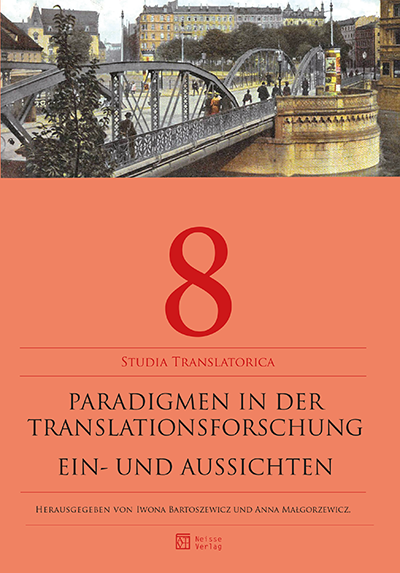Die anthropozentrische Translatorik von F. Grucza. Skizze der paradigmatischen Evolution einer Disziplin
The conception of anthropocentric translatorics by F. Grucza: An approach to presenting a paradigmatic evolution of a scientific discipline
Author(s): Jerzy ŻmudzkiSubject(s): Translation Studies
Published by: Oficyna Wydawnicza ATUT – Wrocławskie Wydawnictwo Oświatowe
Keywords: the anthropocentric conception of translation; the cognitive and practical competences of a translator; the relationship of translation as a system of constituencies for any situation of translation;
Summary/Abstract: The article outlines, evaluates and gives a special review of the development of the paradigm which founded the conception of anthropocentric translatorics formulated by F. Grucza. In this way, the author of the new theory and the new scientific discipline has opened a new perspective on translation by establishing the complete relationship between the constituencies within this fundamental constellation of every translation situation. The translator as a human being has been situated in the centre of the relationship of translation and defined as the subject of any cognitively and communicatively oriented translation activity. Thanks to this anthropocentric approach (as a different option) anthropocentric translation studies started to be treated as an autonomous scientific discipline. The main goal of the anthropocentric translatorics (known also as translatology) consists in reconstructing of special features of the central object (which are the translators themselves) performing the main translation operations like re-profiling, re-contextualisation, re-addressing. The very reconstruction concerns skills within the translator’s competence determined by other translation operations. The didactics of translation has to be based and profiled upon the above characterised constituencies of the translator’s competence which depend on the type/kind of translation.
Journal: Studia Translatorica
- Issue Year: 2017
- Issue No: 8
- Page Range: 11-30
- Page Count: 20
- Language: German

